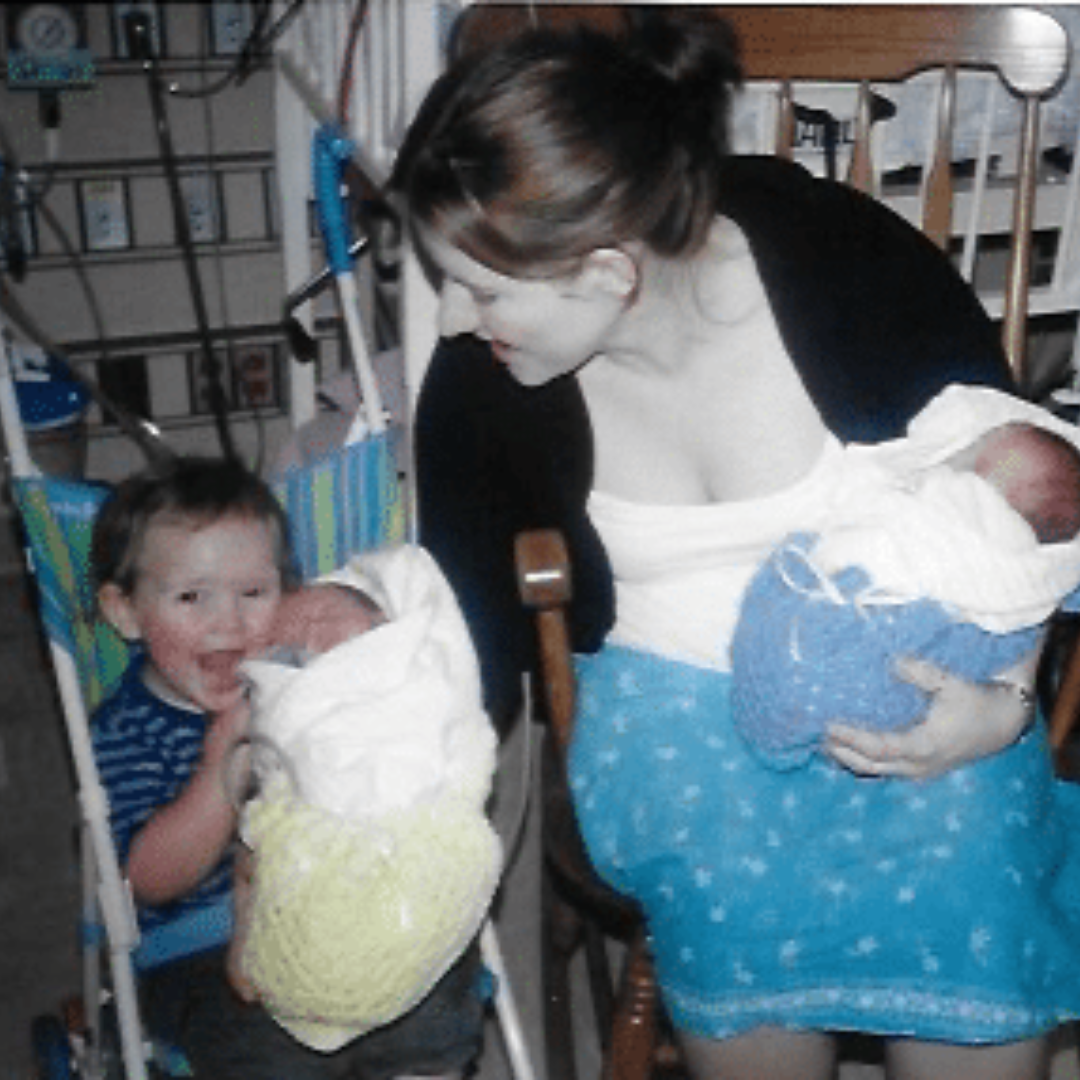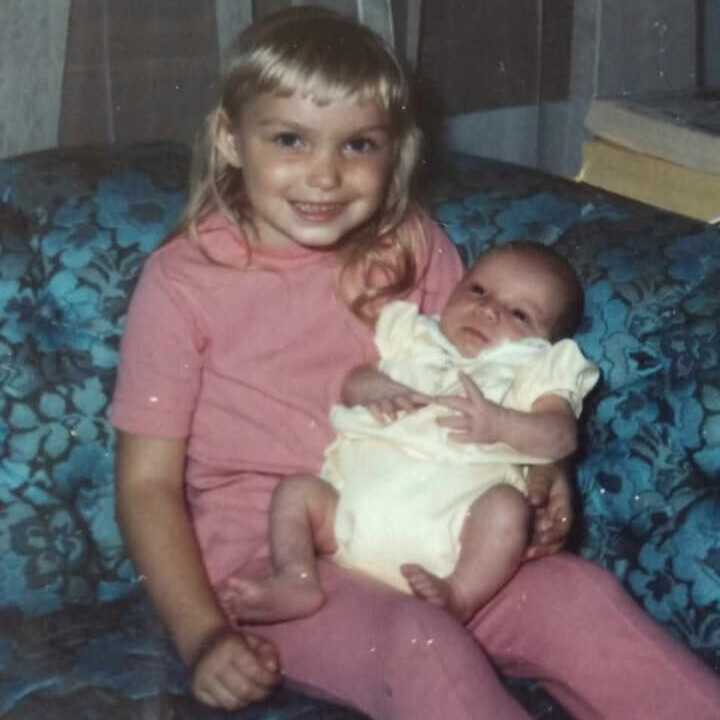by Leann Springer
In my role as communications manager at Immunize Colorado, I’ve learned a lot about vaccines. Routine childhood vaccines play an essential role in the health of children and our entire community. Diseases once common are now rare – that’s thanks to vaccines! We are lucky to live in a time when our children have access to one of the safest health interventions available.

Navigating High-Risk Twin Pregnancy
In 2004, my husband and I were expecting twin boys. While we were elated, we knew twins were going to be a challenge. Adding to the challenge, we had a nearly two-year-old toddler. That winter, I was put on partial bed rest. This is not uncommon. Moms of multiples are at greater risk for pregnancy complications.
Things got more serious in April when I attended a routine doctor appointment. He took one look at me and told me, “Do not pass go. Go immediately to the hospital.” I was preeclamptic. The pregnancy had become dangerous for both me and the babies. Having preeclampsia, if untreated, can lead to shock or death.
After five days in the hospital, I required an emergency C-section. We were lucky! All of us made it through the pregnancy. (My husband would like for me to state that he too made it through the pregnancy. It was a scary time!) That said, the boys were six weeks premature. They were required to stay in the Neonatal Intensive Care Unit or NICU.
Our Family's Battle with Rotavirus in the NICU
Our stay at the hospital was not a day or two like a typical birth. It was weeks. My parents traveled across the state to help with the care of our oldest son. The three of them went back and forth between our home in rural Garfield County to St. Mary’s Hospital in Grand Junction.
Our toddler became ill and was diagnosed with rotavirus just a few days after the twins’ birth. I’ll omit all the gross details, but rotavirus is simply not fun. He was sick, so sick, and had to be monitored for dehydration! Unfortunately, this was nearly two years before the rotavirus vaccine became available.
My husband and I also got sick. We had to quarantine for several days to keep both of our boys and every other infant in the NICU safe. Not seeing them during that time was awful! Diseases like rotavirus can be deadly to infants, particularly preterm infants and those born with other health complications that need NICU care.
The Fragile First Steps of Premature Twins
It was a difficult time even after we recovered from rotavirus and were able to see our boys again. There were a myriad of tubes and cords connected to them. I wanted to start nursing them, but they had to be tube fed. Every drop of specialty formula they ingested mattered profoundly toward their weight gain. Their tiny bodies, head to toe, didn’t even take up the space from the palm of my hand to the end of my forearm. They floated in newborn onesies like oversized t-shirts. They were put on oxygen immediately after their birth, and we became obsessed with their oxygen saturation levels, fearful of any dip.
Eventually, both boys were released from NICU care and sent home where they continued to need supplemental oxygen. Though we were all home together, we weren’t out of the woods. They would remain at greater risk from complications from illnesses for quite some time. It seemed, throughout preschool and elementary school, a common cold would hit them harder and last longer than it would with their peers.
The Protective Role of Vaccines
Routine childhood vaccines were crucial in protecting our boys. I lament that the rotavirus vaccine was not available at the time of their birth. I imagine how much easier those early days could have been if our oldest was protected by it. I also know that the routine childhood vaccines they did get helped them become the healthy adults they are today. For infants too young to receive routine vaccines – especially premature infants – vaccines are critical to ensuring their health and ability to thrive!
Leann Springer is the Communications Coordinator at Immunize Colorado. Sentence about the author. Her story, like all others on this blog, was a voluntary submission. If you want to help make a difference, submit your own post by emailing us through our contact form. We depend on real people like you sharing experience to protect others from misinformation.



